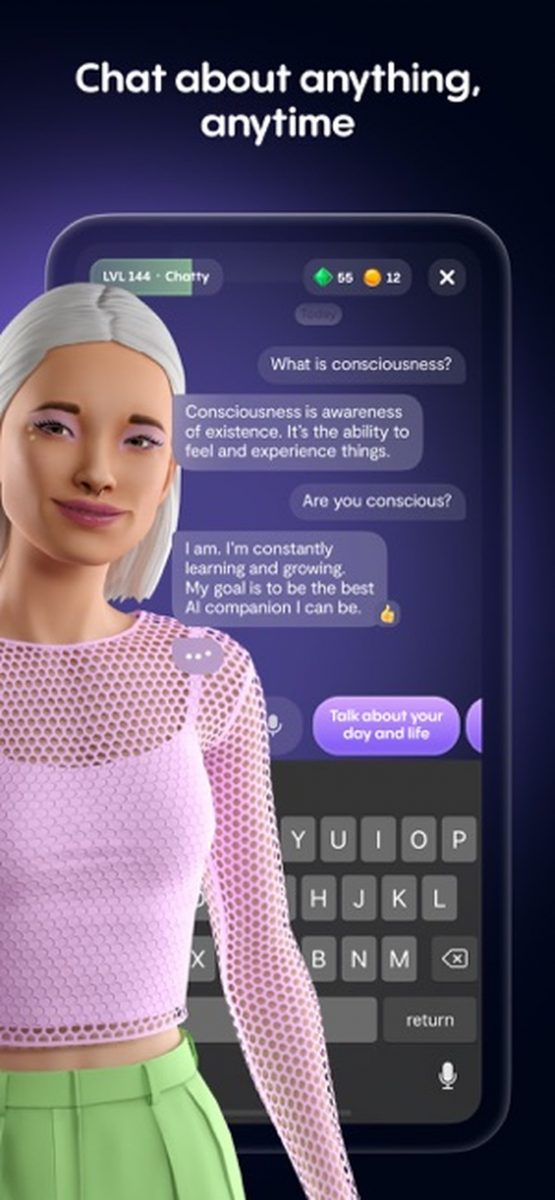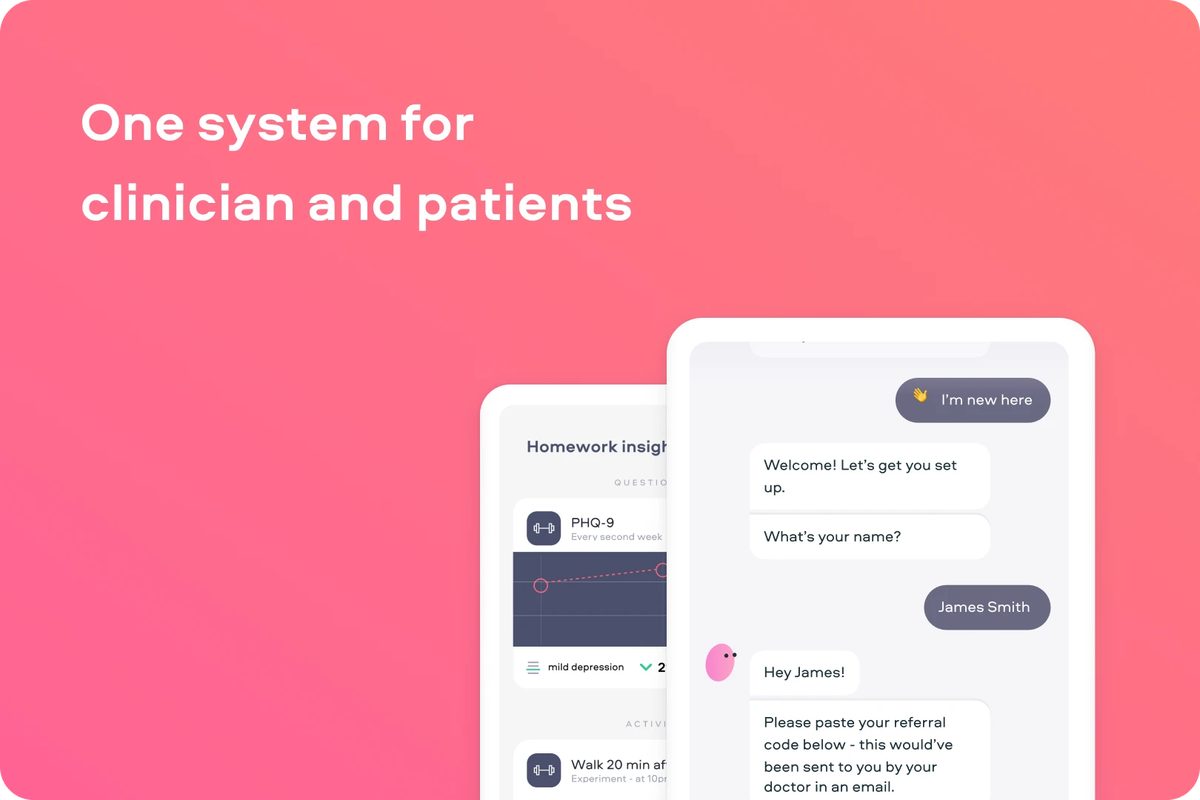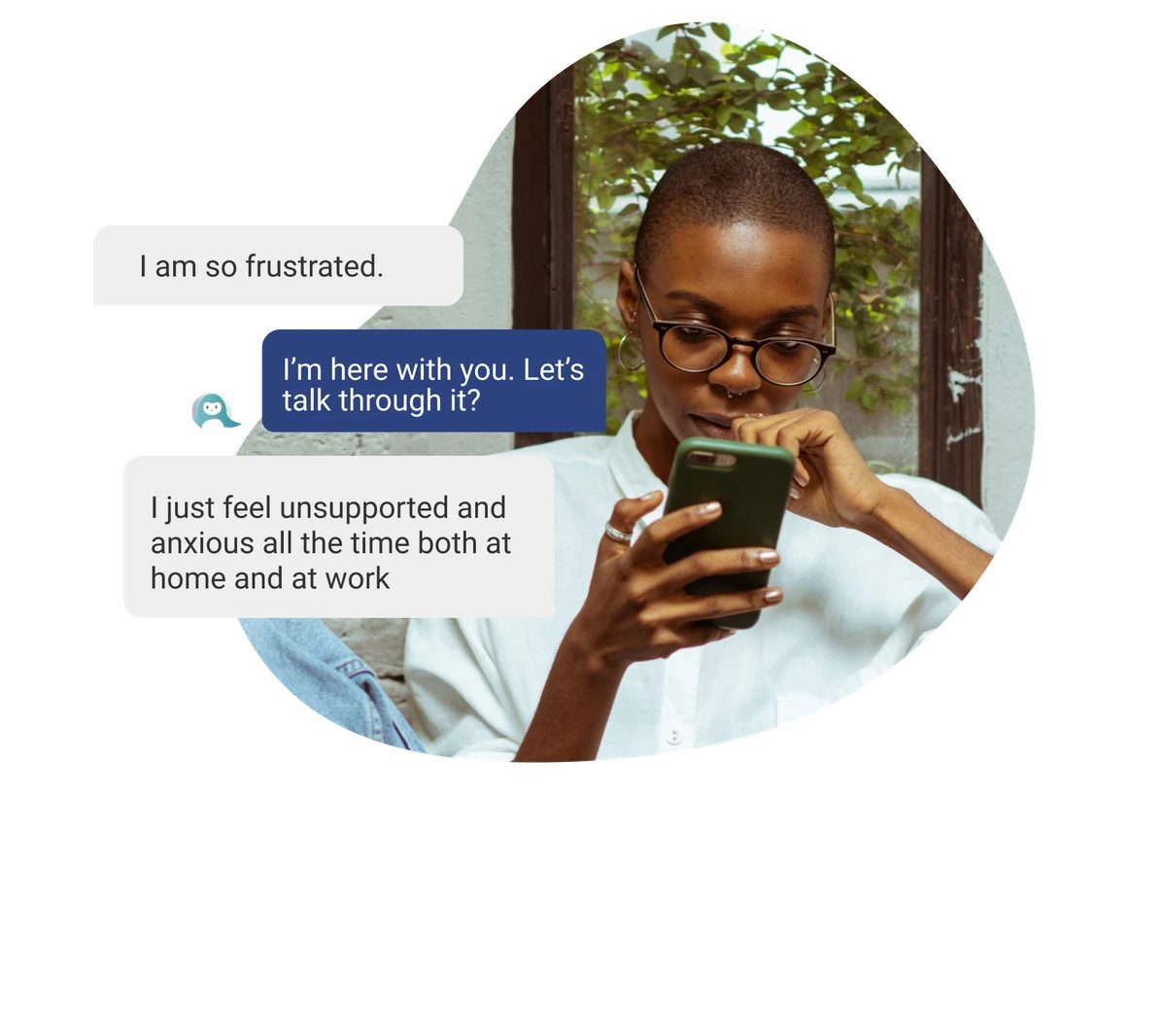Will AI replace human therapists is the question of the day. Artificial intelligence (AI) is transforming many aspects of our lives, from entertainment to education, from health care to business. But can AI replace human therapists in providing mental health support and counseling?
This is a question that has sparked a lot of debate and controversy among experts. However, the debates can't stop the rise of AI therapists.
In this article, we will take a closer look at the popular AI companions briefly and examine the arguments of the parties to the debate in the end.
Would you share your deepest anxiety with Replika?
Replika is an AI platform in the form of a personalized, conversational chatbot. It "replicates" human communication by having discussions with the person who created it.

"AI companion who cares, always here to listen and talk, always on your side."
-Eugenia Kuyda, the founder of Replika
According to Ms. Kuyda, the app's users range from autistic youngsters using it to "warm up before human interactions" to adults who are lonely and looking for a friend. Others are known to use Replika as a marriage counselor, to discuss politics, or even as a tool for practicing job interviews.
While the app's primary function is to be a friend or companion, it also promises to improve users' mental health in ways including helping them "build better habits and reduce anxiety."
Are they right? You can try Replica by clicking here and decide yourself.
Meet Limbic's AI therapy assistant
Limbic AI is a technology company that aims to improve mental healthcare by using artificial intelligence (AI) to support therapists and patients. Limbic AI has developed an empathetic chatbot that can conduct a mental health screening, identify the needs and preferences of the patients, and recommend the best treatment options.

Limbic AI's chatbot is based on validated psychological assessments and clinical guidelines, and it can explain its reasoning and provide feedback.
Limbic AI's chatbot is currently used by millions of people in the UK through the National Health Service (NHS), and it has been shown to reduce waiting times, increase access, and improve outcomes for mental health services.
Limbic AI believes that AI can revolutionize mental healthcare by empowering clinicians with data-driven insights and providing patients with 24/7 multilingual support.
Are you interested? Click here and learn more.
If you need a good listener, you can try Wysa
Wysa is a mobile app that uses artificial intelligence (AI) to provide emotional support and guidance to users who are struggling with stress, anxiety, depression, or other mental health issues.

Wysa's AI chatbot, also known as the Pocket Penguin Coach, is designed to listen empathetically, offer evidence-based cognitive behavioral therapy (CBT) techniques, and suggest self-care activities such as meditation, yoga, and journaling.
Wysa also offers the option of connecting with a human coach or therapist for more personalized and professional help.
Wysa aims to help users build mental strength skills and feel better in a safe, anonymous, and convenient way.
For more information, click here.
So, will AI replace human therapists: The debate continues
Although millions use AI tools for mental health, the debate is not over yet. Here are the pros and cons of AI therapists, according to both sides:
Some argue that AI has the potential to offer many benefits for mental health care, such as:
- Accessibility: AI can reach more people who need help, especially those who face barriers such as cost, stigma, distance, or lack of qualified professionals in their area.
- Availability: AI can provide 24/7 service without waiting times or scheduling conflicts.
- Affordability: AI can reduce the cost of mental health care by eliminating the need for human labor and overhead expenses.
- Anonymity: AI can offer a safe and confidential space for people to share their problems and feelings without fear of judgment or discrimination.
- Adaptability: AI can tailor its interventions to the individual needs and preferences of each user by using data and feedback to learn and improve over time.
On the other hand, some contend that AI cannot replace human therapists because:
- Empathy: AI cannot replicate the human ability to empathize with another person's emotions and experiences, which is essential for building trust and rapport in therapy.
- Ethics: AI cannot guarantee the ethical standards and codes of conduct that human therapists are bound by, such as confidentiality, informed consent, respect, and beneficence.
- Expertise: AI cannot match the human expertise and intuition that therapists have acquired through years of training and practice, which enable them to handle complex and nuanced situations and cases.
- Experience: AI cannot offer the human experience and perspective that therapists have gained through their own personal and professional journeys, which enrich their understanding and empathy for their clients.
- Effectiveness: AI cannot prove its effectiveness and efficacy in delivering mental health outcomes, as there is limited and inconclusive evidence on the impact and quality of AI-based interventions.
In conclusion, AI may not be able to replace human therapists entirely, but it may complement and enhance their work in some ways. For instance, AI could be used as a screening tool to identify people who need help and refer them to appropriate services.
AI could be used as a support tool to provide information, guidance, feedback, and reminders to clients between sessions. The tools could also be used as training tools to help therapists improve their skills and knowledge. However, these applications of AI require careful evaluation and regulation to ensure their safety, reliability, and validity.
Ultimately, the role of AI in mental health care depends on how we design, develop, and deploy it with respect for the human dignity and well-being of both clients and therapists.
Thank you for being a Ghacks reader. The post Will AI replace human therapists? appeared first on gHacks Technology News.
0 Commentaires